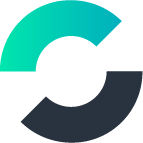Can AI make an avatar of Mikael Dolsten? The former chief scientific officer of Pfizer will try to find out now that he’s starting a new chapter at Formation Bio after nearly 16 years at the New York pharma giant.
In one of his first interviews since leaving Pfizer, Dolsten exclusively told
Endpoints News
that he is leading a drug-picking committee at Formation Bio, an AI-focused biopharma. In addition to chairing that group, he will serve as a strategic advisor to Formation Bio, a deeply ambitious company that has raised over $600 million,
including a $372 million Series D last June
.
Formation Bio CEO Benjamine Liu said Dolsten brings 30-plus years of experience knowing what a great drug program looks like. He’ll help Formation Bio — which is pursuing a Roivant-esque model of picking up assets — select which drugs to in-license. But Liu said he also hopes Dolsten’s input can help teach AI models to basically imitate how Dolsten and other veteran drug hunters make these calls.
“The thing we’re trying to do with Mikael is: How do we recapitulate what an AI Mikael looks like?” Liu said in an interview, saying he hopes experts like Dolsten can train the AI system how to make decisions and evaluate opportunities.
Dolsten, 66, has wasted little time kicking off his post-Pfizer tenure. His last day at the drugmaker was Feb. 28, and he started working with Formation Bio on March 1. His role at Formation Bio will be announced later on Wednesday.
He’s also building “Mikael’s ecosystem,” a mix of about 10 life sciences companies that he’s working with.
Dolsten described his Pfizer tenure as “a fabulous run exceeding my wildest aspirations,” adding that he started to plan his departure about two years ago. Dolsten’s exit was first announced in July, and he helped choose Chris Boshoff as his successor. Leaving Pfizer was his own decision, he said, and wasn’t influenced by Starboard Value’s activist campaign. All told, Dolsten brought more than 35 products through approval, including the Covid-19 vaccine, Comirnaty.
“I just felt that it would be hard to beat a lot of those amazing things we accomplished,” Dolsten said. “I felt intrigued by working in a new environment.”
Dolsten’s other roles include board seats at the instrument maker Agilent Technologies, the New York AI biotech
Immunai
, and the Danish macrocycle biotech
Orbis Medicines
. He said he is also helping launch a new biotech startup with a serial entrepreneur from Yale University.
That said, he’s spending relatively more time on his Formation Bio role, estimating he spends about a day per week at the company. Also on Formation’s drug-picking committee is its newly-hired chief business officer David Steinberg, a co-founder and former executive at PureTech Health. Steinberg joined in October.
Dolsten described his conversations with Liu over the past few months as a key factor in his decision to join the company. He described Liu as a “high-energy AI magician with a vision.”
One of Formation’s newest projects is using AI,
particularly the latest generation of deep research tools
, to create an atlas of all possible drug targets. This includes scouring press releases, scientific conference abstracts, company websites and more to aggregate up-to-date reports for each target. The goal, Liu said, is an “equivalent of
RA Capital’s atlas
, but instead of 50 PhDs, we have AI systems go through target by target.”
With about 150 employees right now, Formation Bio is betting that AI-based workflows can be more efficient than a 100,000-person pharma company. Dolsten said he’s impressed by what today’s AI systems can produce, compared to the conventional way that large drugmakers like Pfizer and AstraZeneca operated while he worked there.
“So much of that work required advisory committees, multiple business development meetings, and now can happen in the instant of a moment,” Dolsten said, estimating that about 80% of that work can happen in 30 minutes using these AI systems.







